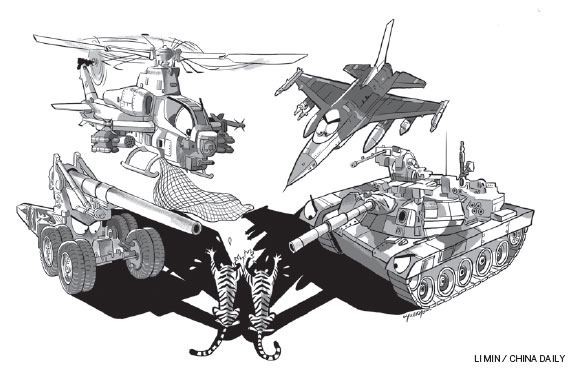Anti-graft drive will strengthen PLA
By Liu Qiang (chinadaily.com.cn) Updated: 2015-01-26 15:24

Corruption can debilitate a military. For instance, corruption in appointment of personnel will deprive qualified and capable officers of promotion, impairing the force and demoralizing the personnel. This will weaken management, and affect the training and fighting ability of the military personnel. Also, corruption will lead to extravagance and waste of limited strategic resources that could otherwise be used for strengthening the military.
China's ongoing battle against corruption in the military also shows how determined and capable it is when it comes to self-improvement. There is enough reason to believe that, as one after another corrupt military officer falls, the modernization of China's military will gain pace and the country will once again have a clean, valiant and mighty fighting force.
President Xi recently said that for income, military personnel, including officers, should only depend on their salaries. Only after this becomes a reality can China have a clean, efficient and powerful military.
But since the salaries of China's military personnel and officers draw are less than what their counterparts in developed countries get, the country has to increase their pay. But before announcing the pay rise, the country's leadership should make the facts clear to the rest of the world so that detractors don't accuse China of a military buildup.
The military cannot be exempt from the anti-corruption campaign simply because it is part of the State. Xi's recent remarks that "no indexes are set for anti-corruption in the military" and "any one, no matter how senior he or she is, could be investigated and penalized" reflect the top leadership's resolve to develop a military that will serve as the cornerstone of national security and development, and help realize the Chinese Dream.
The author is a professor at and presiding director of the Strategy and Security Institute, affiliated to the PLA University of International Studies

I’ve lived in China for quite a considerable time including my graduate school years, travelled and worked in a few cities and still choose my destination taking into consideration the density of smog or PM2.5 particulate matter in the region.











